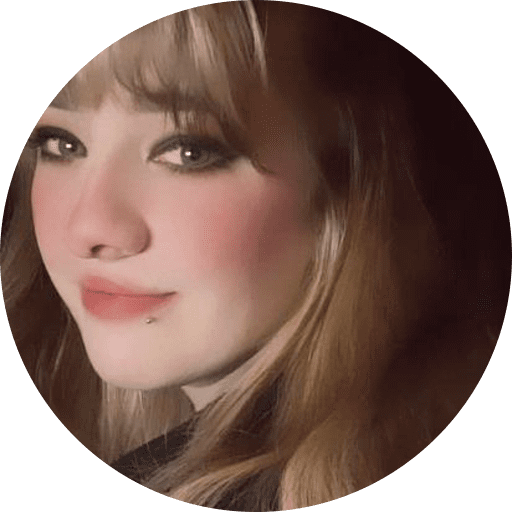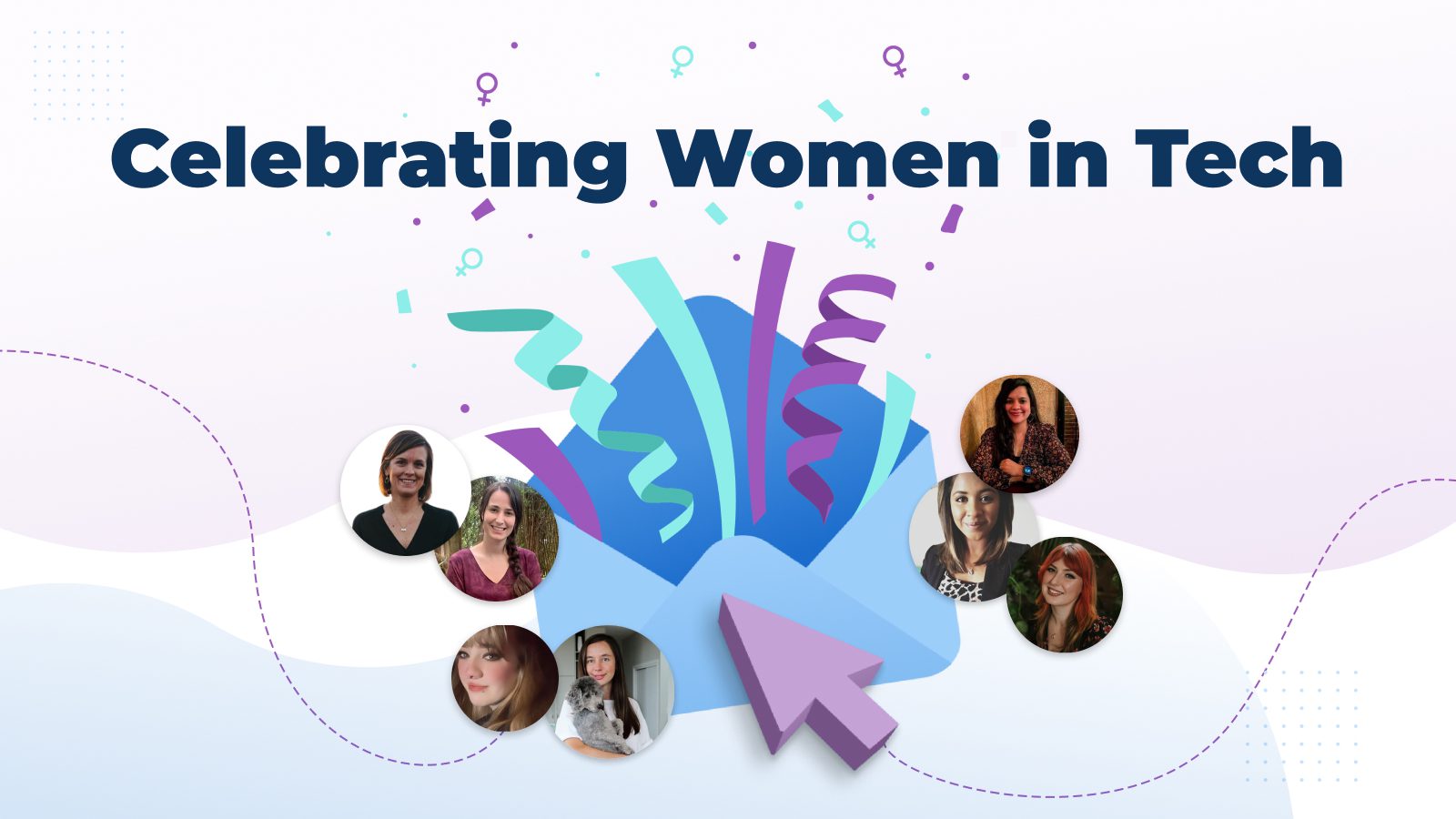Women have made great strides in the tech industry in recent years.
It’s true: More women than ever are being encouraged to enter STEM fields, more employers recognize the need to close the gap, and more people understand the harm of gendered stereotypes and rigid, outdated roles.
But it’s also true that we have miles to go before equal representation is achieved: Just 25% of those in technical positions are women — a proportion that only continues to dwindle the higher up the leadership ladder you go.
At Dyspatch, we’re proud to employ a diverse workforce, and our leadership thrives thanks to the women in these roles. But we also know diversity, equity, and inclusion are not just boxes you can check off. They’re values that all companies, especially those in industries like ours, need to actively work towards every single day. And part of that means sharing our experiences, so others who’ve been historically underrepresented can see their own potential to make change.
So for International Women’s Day, we decided to connect with some of our Dyspatchios and ask: What does being a woman in tech mean to you?
Far more than just an opportunity for personal reflection, it’s a way to share our learnings with each other, and with you. Because women belong in tech, in STEM, in leadership positions, and beyond — everyone should know that.
Without further ado, here’s what some of the women at Dyspatch had to say:

Veronica Best, VP Product
A career in tech has given me wonderful opportunities to learn about so many exciting industries — from online dating, to wearables and IoT, to email production — and to meet people around the world who are passionate and creative.
I am privileged to have had so many inspiring people champion me and support me along the way. To me, being a woman in tech is about continuing this tradition of helping to build a culture where anyone can succeed in this industry and bring their unique talents, background, and experience to help us build the world of tomorrow.

Rhianna Robertson, Community and Culture Coordinator
Being a woman who is new to the industry, it has been invaluable for me to have a network of other women I can reach out to, learn from, and dialogue about the day-to-day experiences of being a woman in Tech – but really any industry that is male-dominated. When I first started, I was immediately set up with an external mentor that was also a woman in a similar industry. It reinforced that I want to learn from women before me and alongside me, so I can continue to build on that foundation for future women in my position.
Things that make a difference for me at Dyspatch are: Having a safe space in the women’s Slack channel, knowing there is an anonymous form should I need to express any concerns, and being a part of the Inclusion Committee. These practices show me that Dyspatch wants to uphold their values – particularly Caring Deeply and Diversity is Strength. It allows me to trust the shared understanding that we can’t always get it right, but the commitment to listening and learning for next time is really what it is all about.
If you’re a part of a company and you want to lift up women and particularly Women of Color, it is important to focus on that key piece: Listen. Create the culture, as well as the space, for women to express their concerns and suggestions, then take action. Don’t let that valuable intel fall to the wayside – it will not only hurt the team dynamic, but your overall success as a company.

Tessa Reid, Content Manager
When I was a little girl, my dad was always tinkering with tech. He’d bring home computers… not computers as we think of them today… I’m talking big, clunky desktop towers… and he’d take them apart and put them back together again. To an eight-year old obsessed with lego and sci-fi novels, it was fascinating. It gave me an early taste for tech — I was computer literate by the time I was ten. Maybe not so impressive in 2022, but back then, ten was young to be computer savvy!
My dad hoped I would go into engineering. Follow in his footsteps. There was no doubt in his mind that I could. As kids tend to do, I decided on a different course for myself. But his belief in my abilities always stuck with me, as did my fascination with all things digital. It paved the way for a career at the intersection of my passions: Writing and technology.
All this to say, I’m grateful for a career that blends what I love best. I’m grateful for a family that supported me, always. And I’m grateful to work for a company that does the same — that takes DEI seriously and backs that belief up with a deeply diverse, inclusive team.

Sayali Upasani, Production Engineer
For me personally, being a “woman in tech” has been a fairly positive experience. There are times when I feel that I am not enough for this ever-changing and ever-evolving world of technology. But, these self doubts are just a part of being in this industry and they are more and more acknowledged these days, giving us a better window to share and regain confidence.
When I see the statistics for “women in tech”, the numbers do make me feel that the responsibility is on our shoulder to reach out and empower all folks, of all genders, who might feel it’s easier to hold back and let go of their passion than to fight some of these biased beliefs!
If I have to give advice to all the women who hesitate being in tech due to some of these stereotypical reasons, I would say: First, make sure you are not the part of the group that harbors gender-biased beliefs. If you love the idea of “always something to learn”, you can definitely do this! And, more often than not, you will meet some great people who will inspire and push you to go above your limits.

Lindsey Fine, VP Sales
To me, being a woman in tech means helping to continue to change the status quo. I serendipitously found my way into tech early in my career. I’ve been fortunate enough to have incredibly strong women leaders to learn from along the way. I’m hoping to continue to be part of this movement and inspire others in this space and those thinking about getting into tech.

Supriya Daswani, Senior Growth Marketer
This is a really interesting question. I think being a woman in tech means a lot of things for me. Being in tech by itself has been an incredibly enriching experience — filled with incredible support, ever-changing new challenges and excitement of leading a career in a space that is still very much evolving and growing.
When it comes to being a woman in tech — for me it is about challenging the gender norms. Being south-east Asian, I did not grow up in an environment which was very supportive of women in tech. It was (and to a certain degree still is) a male-dominated field. In that manner, being in this field has had its challenges when it comes to establishing a reputation and planning a growth trajectory. However, the last couple of years, I have had the opportunity to work with some amazing organizations (Dyspatch being one of the most prominent ones) where there aren’t only a lot of women, but a lot of women in critical decision-making roles.
This has massively changed what I believed of where women stood in the tech world and the amount of impact that we are making in this area. I am so proud to be a Dyspatchio and have such incredible women colleagues/leaders!

Emily R, Junior Graphic Designer
What being a woman in tech means is a hard thing to answer. For me personally, it doesn’t feel different than anyone else being in tech. In the past, society wasn’t so accepting of women pursuing careers they are passionate about, but in today’s society it’s definitely changing. Thanks to all the other women who fought for their passions and their positions in tech, I get to feel at home in this industry.
Towards a diverse future
From all of us here at Dyspatch, happy International Women’s Day (and Month)!
We hope you enjoyed reading these insights as much as we did collecting them. A big thank you to everyone who participated in this and shed some light on their experiences. Hopefully one day we’ll live in a world where the distinction “women in tech” is unnecessary.
But until then, let’s continue to uplift and amplify those who dare make bold strides in the face of age-old gender norms. Let’s champion those who defy the boy’s clubs too often seen in these sectors.
And let’s make it our mission to strive for diversity, equity, and inclusion — in everything we do.
